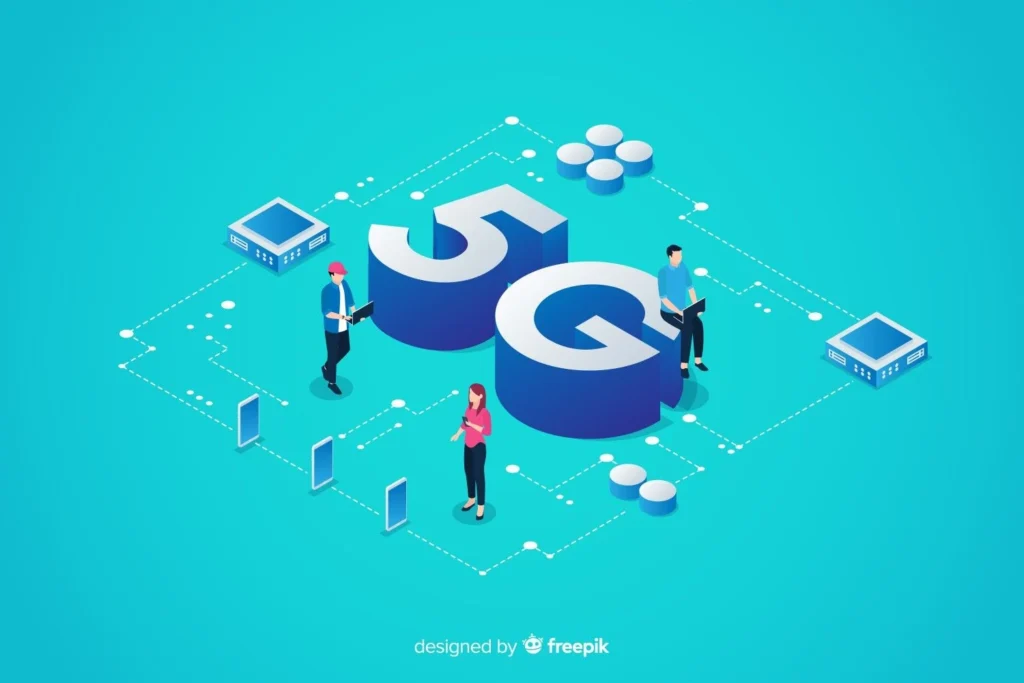The future of connectivity is advancing at an incredible pace, and 5G is at the forefront of this transformation. Offering unprecedented speeds, significantly lower latency, and the capability to support billions of devices, 5G is more than just an upgrade—it’s a game changer. From powering smart cities and healthcare innovations to enhancing our everyday online experiences, the applications of 5G technology, advances in network infrastructure, and emerging use cases are already shaping new possibilities across industries.
5G vs. 4G: The Next-Level Leap in Connectivity
When it comes to 5G vs. 4G, the differences are dramatic. While 4G gave us faster speeds, 5G takes things to the next level with data transfer rates that can be up to 100 times faster. This increase in speed is more than just a perk for streaming and browsing—it opens doors to critical advancements in real-time applications like remote surgeries, autonomous driving, and live-streamed virtual reality. The key benefit of 5G’s ultra-low latency means smoother, faster interactions, which is essential for time-sensitive tasks.
Applications of 5G Technology
The potential of 5G technology applications is vast, with benefits that extend across multiple sectors. Here are a few examples:
Healthcare Innovations: With 5G, real-time patient monitoring becomes more effective, allowing doctors to oversee patients’ health remotely. In some cases, doctors can even conduct remote surgeries, making high-quality care accessible to those in remote areas.
Smart City Development: Urban planners are using 5G to build more connected and efficient cities. This involves everything from creating smart traffic systems to providing public services that adjust based on demand, which can make urban living more sustainable.
Enhanced Entertainment: In the entertainment space, 5G is paving the way for highly interactive experiences. Technologies like augmented reality (AR) and virtual reality (VR) benefit from 5G’s capacity, making virtual experiences far more realistic and enjoyable.
Building 5G Network Infrastructure
Developing a robust 5G network infrastructure is essential for maximizing the benefits of this technology. Small cell installations and extensive fiber optic networks help ensure widespread coverage, especially in densely populated areas. By creating a strong foundation, 5G allows smart devices and Internet of Things (IoT) applications to work more smoothly, from home automation systems to industrial equipment, thereby boosting efficiency and reliability across sectors.
5G Use Cases Revolutionizing Industries
With 5G use cases emerging across various industries, we’re already seeing a positive impact. Here are some examples:
Self-Driving Vehicles: 5G enables vehicles to communicate with each other and the surrounding infrastructure in real-time, enhancing road safety. This technology allows cars to “talk” to one another, receiving alerts about potential hazards, traffic signals, and road conditions to improve autonomous driving.
Smarter City Management: Through 5G, cities can better manage infrastructure, traffic flow, and energy use, ultimately reducing costs and improving quality of life for residents.
Manufacturing Efficiency: In factories, 5G helps with automation, predictive maintenance, and remote machinery control, making operations more efficient and reducing unplanned downtime.
Addressing Cybersecurity in a 5G-Connected World
With the many devices connected through 5G, cybersecurity has become more critical than ever. As billions of IoT devices operate on 5G networks, potential vulnerabilities increase, requiring robust 5G cybersecurity strategies. This includes using advanced encryption, network monitoring, and security protocols to protect sensitive data and ensure system integrity. Addressing these cybersecurity challenges is crucial for both users and businesses to feel safe in this new digital era.
5G IoT Integration: Linking Everyday Life
The integration of 5G and IoT is reshaping how we live and work. As 5G connects more IoT devices, from healthcare wearables to smart home systems, these devices can work together in real time, making everyday life more convenient and efficient. Imagine a smart refrigerator that monitors food supplies or a healthcare wearable that immediately alerts a doctor in case of an emergency—5G is making these possibilities a reality.
Conclusion
5G isn’t just about faster internet speeds; it’s a foundation for a fully connected, smarter world. As 5G network infrastructure expands and 5G IoT integration accelerates, we’re entering an era where industries and individuals alike benefit from innovative applications and impactful use cases. However, ensuring strong cybersecurity measures will be crucial to protecting data and maintaining trust as we move forward into this connected future. The possibilities are endless, and the journey with 5G has only just begun.
Frequently Asked Questions
How will 5G impact us?
5G will revolutionize connectivity with faster internet speeds, lower latency, and enhanced capacity for devices, enabling innovations in fields like telemedicine, smart cities, and autonomous vehicles.
What are the future prospects of 5G in India?
In India, the future of 5G looks promising, with government initiatives supporting deployment. It is expected to boost economic growth, enhance digital infrastructure, and improve access to services in rural areas.
What are the differences between the previous generations of mobile networks and 5G?
Unlike previous generations, 5G offers significantly higher speeds (up to 100 times faster than 4G), ultra-reliable low latency, and the ability to connect a vast number of devices simultaneously.
Do I need a new phone if I want 5G?
Yes, to access 5G networks, you will need a 5G-compatible phone, as 4G devices cannot connect to 5G networks.
How and when will 5G affect the global economy?
5G is projected to contribute trillions to the global economy by enhancing productivity, enabling new business models, and facilitating advancements in industries like healthcare and manufacturing over the next decade



